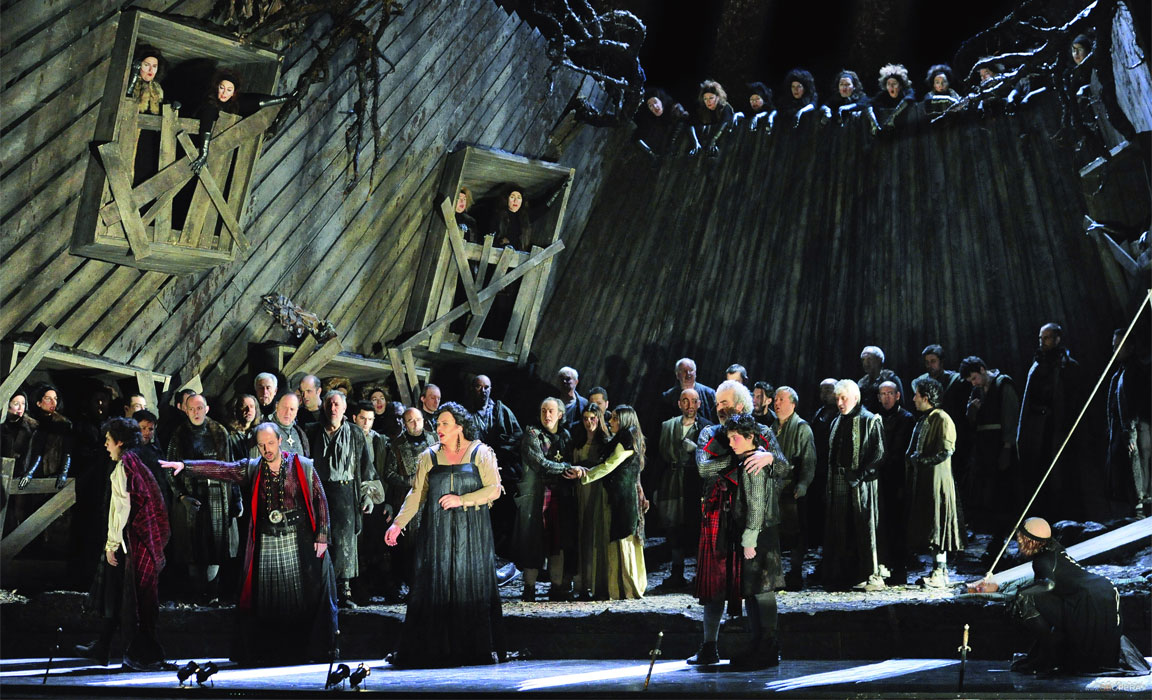Macbeth is an opera in four acts by Giuseppe Verdi, with an Italian libretto by Francesco Maria Piave and additions by Andrea Maffei, based on William Shakespeare‘s play of the same name. “L’opera senza amore!” (The opera without a love affair!): that was the Italians’ reaction to Verdi’s Macbeth when it premiered in Florence on 14 March 1847. Despite its immediate success, an opera that involved no great love affair was perceived by the public as an oddity.
Macbeth was additionally an odd choice, not only for the lack of a couple in love, but also for its focus on the main character. The themes of political corruption, tyranny, longing for freedom, and liberation appealed to Verdi on a personal level: Italy was still a fractured country and his operas helped foster the ever-increasing revolutionary activities of the Risorgimento.
Andrea Maffei, a poet and friend of Verdi, suggested to him that Macbeth would be a good story to make into an opera. Verdi did not read Shakespeare’s original work until after he had composed the opera. The words were written for him by Piave who based the libretto on an Italian translation. Verdi loved the story, he thought it was “one of the greatest creations of man”.
The first Macbeth was played by Felice Varesi. Verdi held him in high esteem (he later became the first Rigoletto and Germont-Père). In a letter Verdi went so far as to make the composition of Macbeth depend on whether Varesi was available for the role.
In 1865 Verdi got an invitation to have Macbeth performed in Paris. In addition to the translated libretto and the obligatory ballet sequence required of all operas when transferred to the Parisian stage, Verdi made some important additions and revisions: extra music for Lady Macbeth in act I (the extraordinary “La luce langue”), a witches’ ballet added at the beginning of act III and an astonishing duet of the two protagonists at the end. In place of the original chorus that opened act IV, Verdi now wrote “Patria oppressa,” a hymn sung by Scottish exiles.


